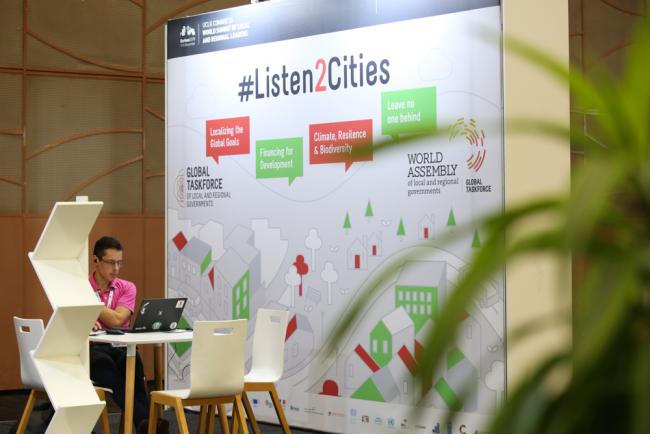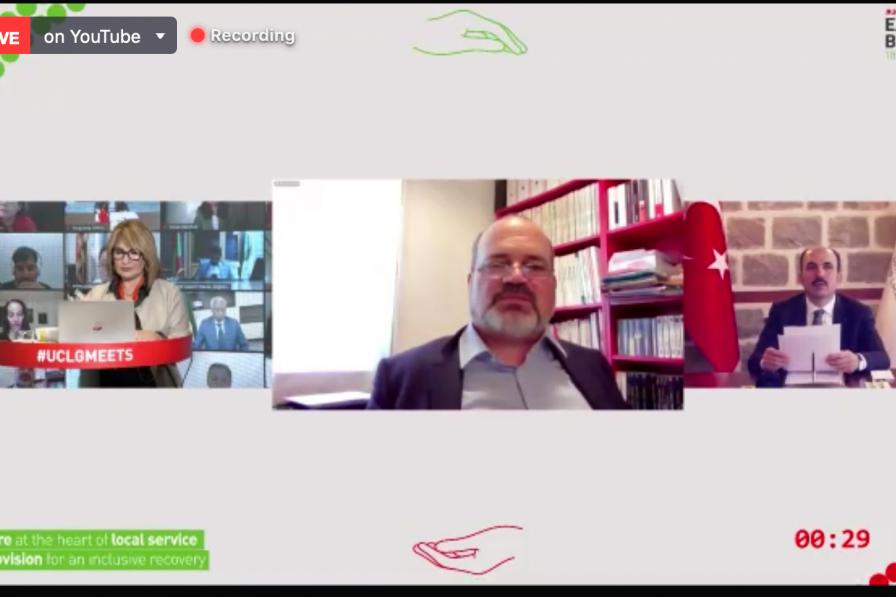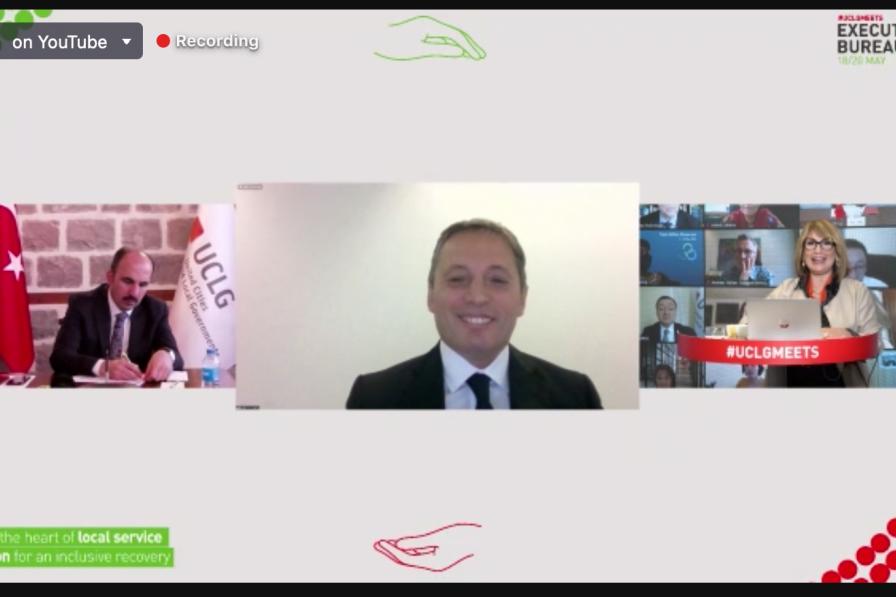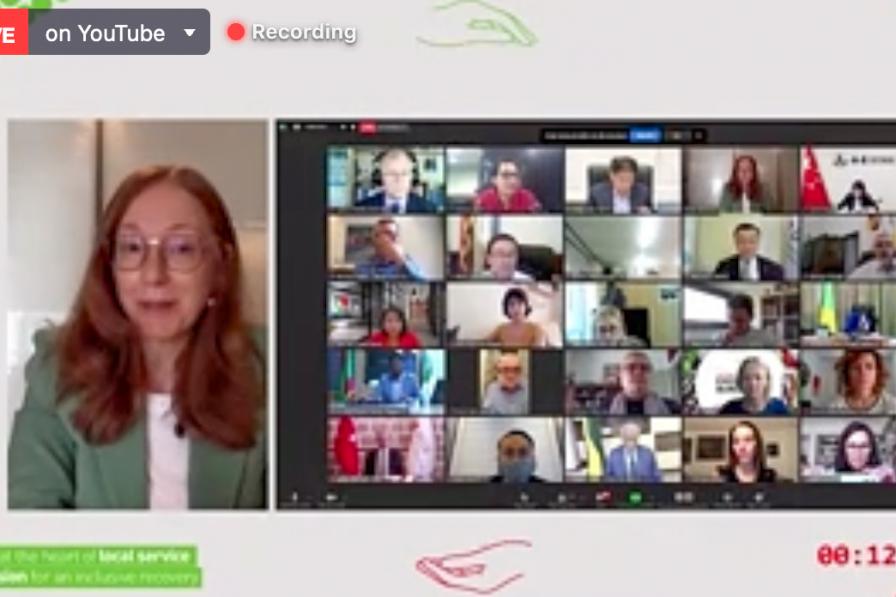On the final day of the meeting participants attended the High-Level Policy Dialogue. The Dialogue focused on healthy people and territories leading to wellbeing. Sharing experiences, participants highlighted the essential efforts that local and regional governments have undertaken to protect communities during the COVID-19 pandemic.
Bringing together health community representatives and policymakers, the Dialogue considered how the pandemic response is shaping the future of health systems. Participants discussed methods for involving communities in decisions that will keep them safe, healthy, and engaged in their cities.
Uğur İbrahim Altay, Mayor of Konya, Turkey, and UCLG Co-President, announced UCLG has joined the multi-stakeholder platform UHC2030, in an effort to achieve universal healthcare and health systems that protect everyone.
Gabriela Cuevas, UHC2030 Co-Chair, welcomed UCLG to the UHC2030 movement. She stressed that local leaders’ participation is imperative to making health systems universal. Cuevas underscored that people-centered and rights-based systems are best suited to respond to disease outbreaks.
Stella Chungong, Director, Health Security Preparedness, World Health Organization (WHO), outlined key messages from WHO's ongoing work on heath and emergency preparedness for cities. She stressed there are many opportunities to seize upon current momentum and to build back better.
Fernando Gray, Mayor of Esteban Echeveria, Argentina, said the pandemic not only brought existing inequalities to light, but also made them worse. He called for mechanisms to ensure equal distribution of vaccines.
Jiang Jiang Chunmei, Chinese People’s Association for Friendship with Foreign Countries (CPAFFC), outlined some of the local actions undertaken to respond to the pandemic in China, such as the continued supply of daily necessities and medicines to residents with the help of volunteers.
Ernest Maragall, Vice President for International Relations & Cooperation, Barcelona Metropolitan Area, noted the need to understand the pandemic not just from the viewpoint of science, but also of civilization, for instance, understanding its relationship with climate change and with production models. He emphasized that cities must participate in decision making instead of serving as the background to the decisions of states and big corporations.
Emilia Sáiz closed the session at 13:40pm.
To receive our summary of this event delivered to your inbox, subscribe to the ENB Update newsletter.









